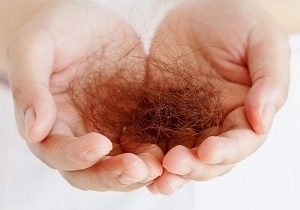Alopecia is a disorder characterized by baldness in a few small areas of the body. It is a condition that has baffled doctors and scientists for many years in terms of the exact causes and how to treat it. Recent research has found that Alopecia is caused mostly by the immune cells attacking the body's own cells in the hair follicle, causing it to be destroyed. (1)
Many studies have attempted to define the epidemiology of this condition and have found that it has a relatively stable incidence rate of about 2%, which means that it is quite rare. One scientific study attempted to determine if age or sex had an impact on the incidence of Alopecia. The study found that age has some effect, but sex does not. (2)
Summary:
Alopecia is a rare disorder which causes small spots of baldness all over the body. The causes are quite complex and it appears that Alopecia can affect anyone of any age or gender.
What causes Alopecia?
Not very much is known about the exact cause of Alopecia but what is known is that it is mediated by cells of the immune system called cytotoxic T lymphocytes. Cytotoxic T lymphocytes are normally responsible for finding cells that have been infected by viruses and destroying them so that the virus does not spread. It recognizes these cells by markers on the cell membrane called antigens. These antigens contain part of a digested virus. In an autoimmune condition, like Alopecia, these T cells recognize normal human cells especially those in the hair follicle and attack them instead, which causes them to be killed and their hair follicle to be destroyed.
The interesting thing about cytotoxic T lymphocytes is that they have to be trained by other immune cells. It is currently not known what cell is responsible for activating the cytotoxic T-lymphocyte in this way. (3)
Scientists have narrowed down a particular pair of genes associated with Alopecia. These genes are responsible for controlling the structure of the antigen that is used to activate a cytotoxic T lymphocyte. (4) Other studies have shown that stress hormones may play a role in facilitating Alopecia. Apart from emotional distress, physical factors such as excessive exposure to sunlight or certain chemicals can have a similar effect. There is also some evidence that certain viruses such as hepatitis B, hepatitis C and the Epstein-Barr virus have an association with the baldness in Alopecia (5).
Summary:
The search for the exact cause of Alopecia is still ongoing. It is well established that the baldness associated with Alopecia is because of the body's own immune cells attacking the cells in a hair follicle. This could be based on either genetic or environmental causes or both.
What are the risk factors?
There are a few risk factors associated with hair loss and Alopecia but they are commonly also associated with an immune disorder. These risk factors include:
- Having a family history of male or female pattern baldness
- Having an autoimmune disease
- Having extensive allergies
There are other indicators of a possible onset of Alopecia baldness. These include having some other form of hair loss or having an abnormal color, texture or thickness of fingernails or toenails. (6)
If you experience any of the risk factors, it might be advised to consult your doctor. However, if you have never had any form of hair loss, there may not be a cause for concern. Essentially that decision rests in the hands of the affected individual. Different people react differently to the symptoms of Alopecia, ranging from being completely unbothered to suffering psychological anguish.
Summary:
There are a few risks that are associated with the onset of Alopecia or baldness which have a common root in immunity and genetics. Having these risk factors may inform a person if they might suffer from Alopecia one day. The risk factors are not an immediate concern as Alopecia does not cause any major health defects.
What can you do to treat it?
The first step in treatment involves seeking the advice of a healthcare professional. This is a necessary step in order to exclude any other underlying cause which could be even more serious than Alopecia. From there, they can direct you to the best course of treatment.
One of the treatments is a steroid injection in the affected area. There are also steroid creams and shampoos but these are less effective.
Another possible course of action is to attempt to alleviate underlying causes (such as stress) and wait for the hair to grow back on its own. Certain vitamins such as biotin can help boost hair growth, so it could be worth checking out a quality supplement. Since it can be quite embarrassing to walk around with a bald patch, cosmetic camouflage might be considered. There are a variety of hairstyles that can cover bald patches or even dyes to cover up really difficult areas. It is not recommended to use the dyes for too long as they could irritate the scalp and cause more hair loss. Hairpieces which can be attached with glue or clips are also an option. (7)
Summary:
There aren't very many treatment options available for Alopecia as it is still being researched. One medical option is to apply steroids to the affected area. Another more natural option is to cover up the patch and wait for the hair to grow back on its own.
Alopecia - Our Final Thoughts
Although it can have some emotional and psychological damages, Alopecia and balding do not have a major impact on the general health of an individual. Researchers are still attempting to find the exact cause of Alopecia, in order to elucidate an exact cure, because it is still quite an embarrassing condition to live with. The affected areas are also exposed to more sunlight and could be more easily damaged. The important steps when dealing with Alopecia are to consult a healthcare professional, to be informed of all of the risks and options available to you and to manage the condition with a constant vigilance. With the right amount of care and knowledge, Alopecia can therefore easily be managed.













